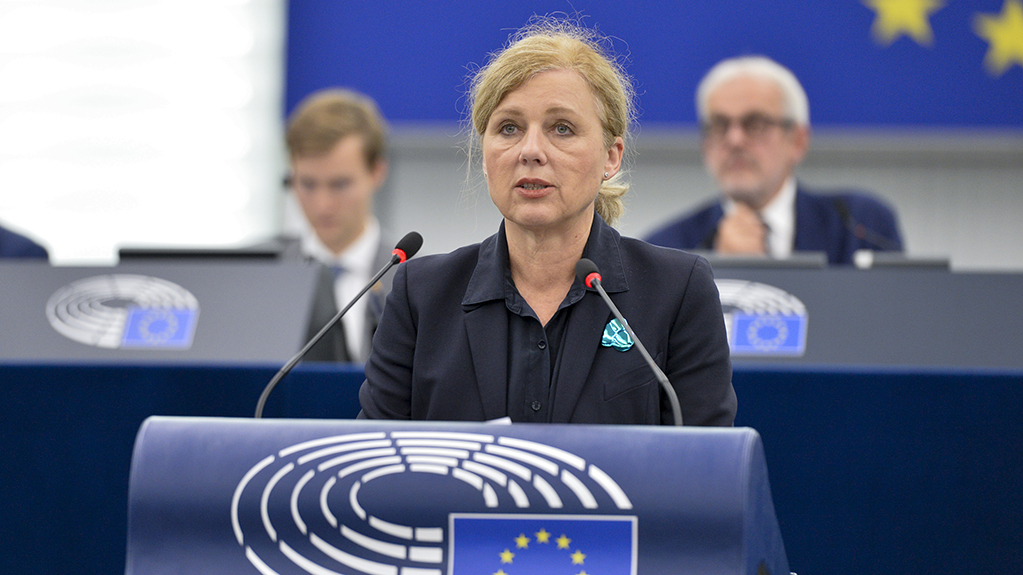"On the 26 of October, over three million Georgians will cast their vote to elect a new parliament. These parliamentary elections are pivotal for Georgia’s EU path. They will also be a critical test for Georgia's democracy," said European Commission Vice President Vera Jourova, speaking at a European Parliament session on behalf of the EU High Representative for Foreign Affairs and Security Policy, Josep Borrell.
News
As Jourova stated, when Georgia was granted EU candidate status last December, it was hoped that this would serve as a strong incentive for the government to implement important reforms and pave the way for negotiations with the European Union.
"Instead, in recent months, the government also introduced laws that have moved the country away from this goal. Despite massive protests, the Foreign Influence Law - which stifles civil society and media organizations - was reintroduced and adopted. Other proposals, that discriminate against and stigmatize the LGBTQ community and weaken the independence of state institutions, have also been put forward. At the same time, anti-EU rhetoric has grown louder," said the Vice President of the European Commission.
She thanked the European Parliament for loudly urging the European Union to take action in response to the "unprecedented anti-democratic" actions and rhetoric of the Georgian government.
"The EU has responded with appropriate measures: Georgia's EU accession process has been halted, political contacts have been downgraded, EU support through the European Peace Fund where 30 million euros is on halt, while the assistance portfolio is reviewed.
We have repeatedly called on the Georgian authorities to reverse their course of action and we have increased our communication toward Georgian citizens. Many of you have echoed such calls.
These measures can be reversed, and the solution is simple if there is political will: Georgian authorities need to start by repealing laws that contradict the stated goal of joining the EU, particularly laws that restrict fundamental rights and freedoms.
We have also heard false accusations and gross diss information about the EU and its values spread by the ruling party including the Prime Minister [Irakli Kobakhidze] and members of Parliament. Claims that the EU and the West are trying to open a second front in Georgia or seeking the 'Ukrainization' of the country are unacceptable, false, and harmful to our relations. These narratives only serve Russia and its propaganda. The EU will continue to expose such false narratives and respond to anti-democratic actions.
Finally, the upcoming parliamentary elections will be a strong test for Georgia's democracy. The electoral campaign has already been tainted by troubling statements and actions from the ruling party, including promises to ban opposition parties and efforts to restrict civil society and the media. Such tactics resemble those of authoritarian regimes. If these measures are implemented, they would clearly contradict Georgia's stated goal to join the European Union and the values and principles on which EU membership is based," said Vera Jourova.
She noted that the European Union will closely monitor the elections and expects them to be peaceful, free, and fair, truly reflecting the will of the Georgian people.
"The EU’s door remains open, but the Georgian authorities need first to realign with the EU’s values and norms and reconnect to Georgia's path towards the European Union. We are ready to support and work with all Georgians on this journey," said the Vice President of the European Commission.
In her closing remarks, Vera Jourova emphasized that Georgia’s future, including its path to the European Union, is entirely in the hands of its citizens and leaders.















